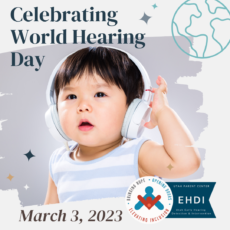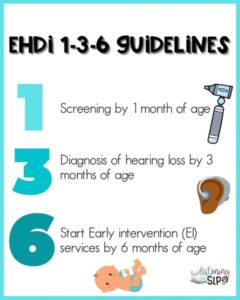
World Hearing Day
World Hearing Day, celebrated on March 3rd is an important opportunity to raise awareness about hearing loss and its impact on children and to promote early detection and intervention to improve hearing care for children worldwide. According to the WHO (World Health Organization), approximately 34 million children worldwide have severe hearing loss, and many of these cases could have been prevented with appropriate interventions.
Here are some ways teaching children about World Hearing Day can be beneficial:
- It can help to raise awareness among parents, caregivers, and educators about the importance of early detection and intervention for hearing loss in children. This can lead to earlier diagnosis and treatment, improving outcomes and reducing the risk of long-term hearing problems.
- Second, World Hearing Day can help to promote hearing screening programs in schools and other settings, which can identify children with hearing loss and connect them with appropriate resources and support. These programs can also help to identify other hearing-related issues, such as ear infections, that may affect children’s hearing.
- Overall, World Hearing Day is an important opportunity to raise awareness about hearing loss and its impact on children and promote early detection and intervention to improve hearing care for children worldwide.
The Utah Parent Center, along with The State Early Hearing Detection and Intervention (EHDI) team, are excited to provide quality support for parents of deaf and hard-of-hearing children regardless of communication mode, amplification choices, label, or diagnosis. Here is some important information about EHDI in Utah and resources to help our families.
What is EHDI?
EHDI stands for Early Hearing Detection and Intervention. It is a government-funded program responsible for all of the newborn hearing screening processes in the country. Click here for Utah’s EHDI consultants and resources.
Consider these EHDI Benchmarks for infants for screenings to take place by 1 month, 3 months and 6 months of age 
1: is for newborn babies to have their hearing screened (tested) by 1 month of age. In Utah, however, babies are screened by 2 weeks of age due to our CMV mandate (separate post and explanation on that coming!)
3: is to have newborn babies diagnosed by 3 months of age and
6: is to have babies enrolled into early intervention by 6 months of age.
Early Intervention: Provides early identification and developmental services for families of infants and toddlers, ages birth to three through the Baby Watch program in Utah. Baby Watch provides early identification and developmental services for families of infants and toddlers. Some of the services they offer include:
-
- A full assessment of a child’s current health and developmental status.
- Service coordination among providers, programs and agencies.
- Strategies to build on family concerns, priorities and resources.
- Developmental services including occupational therapy, physical therapy and speech-language therapy.
PIP (Parent Infant Program): Coordinated through Utah Schools for the Deaf and the Blind, the PIP program is the Early Intervention Program in Utah that specifically serves children who are deaf/hard of hearing. They provide a variety of home-based services for children and families. PIP also provides toddler groups, ASL resources, and story time. Dedicated, caring teachers provide home-based services in a variety of natural settings using developmentally appropriate activities. Click here for the PIP referral form and here for PIP providers in your area.
Click here for more hearing and language milestones!






